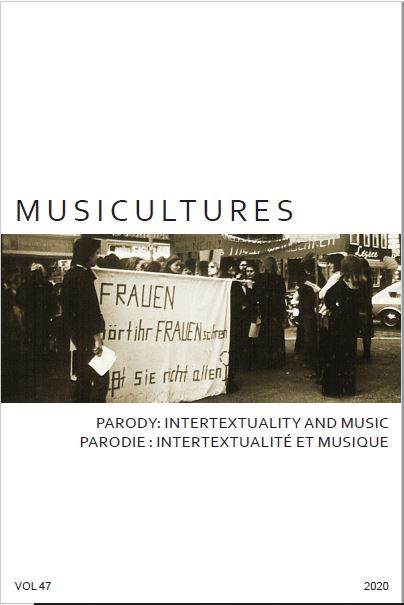Abstract
This article reworks ideas about parody, postmodernism, and television from such critical and cultural theorists as Linda Hutcheon, Jason Mittell, and Jonathan Gray to contextualize the wide variety of parody and intertextuality in the music of the animated TV show The Simpsons. It explores several categories of the show’s music, such as: variations of cartoon themes, songs, instrumental underscoring, and guest musicians. This article particularly uses specific episodes of The Simpsons to highlight parodies of the show’s own theme, movie music, themes from other TV shows, and so on. The show’s music thus functions as a kind of court jester or king’s fool.
- The author retains copyright over the work.
- The author grants the journal owner (The Canadian Society for Traditional Music / La Société canadienne pour les traditions musicales) an exclusive license to publish the work.
- The author may post a pre-print or post-print version of the work (see definitions below) on a personal website for up to twelve months after the work is published in MUSICultures. After twelve months, the pre-print version must be replaced with the published version.
- The author may deposit the published PDF of the work in a non-commercial online repository twelve months after the work is published in MUSICultures, or any time thereafter.
- Any such deposit must include a link to the work on the MUSICultures website, e.g., https://journals.lib.unb.ca/index.php/MC/article/view/19996
A pre-print is a work-in-progress—a contribution not yet accepted, or perhaps even submitted, to MUSICultures.
A post-print is the version of a contribution after peer review and acceptance by MUSICultures, with revisions completed.
The published version is the PDF file of a contribution as it appears in MUSICultures.
Please note that academia.edu and ResearchGate.com are both for-profit repositories; authors may not deposit the published PDF of the work in these repositories until after the journal’s embargo period.
For permission to reprint or translate material from MUSICultures, please contact Heather Sparling, General Editor of MUSICultures (heather_sparling@cbu.ca).

